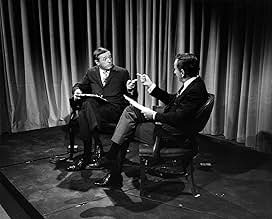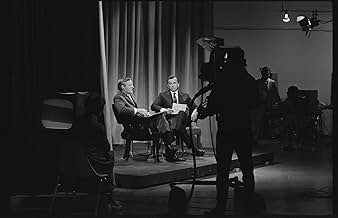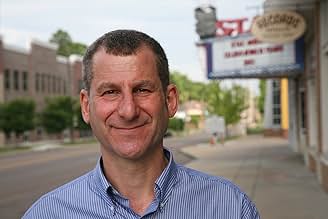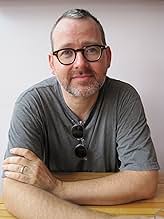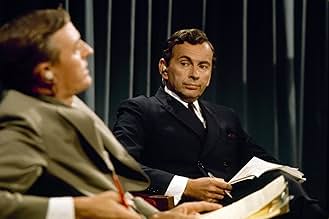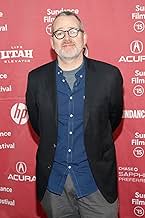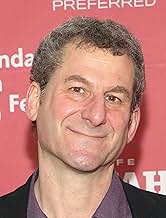AVALIAÇÃO DA IMDb
7,6/10
6,6 mil
SUA AVALIAÇÃO
Adicionar um enredo no seu idiomaA documentary on the series of televised debates in 1968 between liberal Gore Vidal and conservative William F. Buckley.A documentary on the series of televised debates in 1968 between liberal Gore Vidal and conservative William F. Buckley.A documentary on the series of televised debates in 1968 between liberal Gore Vidal and conservative William F. Buckley.
- Direção
- Roteiristas
- Artistas
- Prêmios
- 6 vitórias e 27 indicações no total
Gore Vidal
- Self - Debater
- (cenas de arquivo)
William F. Buckley
- Self - Debater
- (cenas de arquivo)
Noam Chomsky
- Self
- (cenas de arquivo)
Patricia Buckley
- Self - Buckley's Wife
- (cenas de arquivo)
Sam Donaldson
- Self - Correspondent, ABC News
- (cenas de arquivo)
Howard K. Smith
- Self - Anchor, ABC News
- (cenas de arquivo)
- Direção
- Roteiristas
- Elenco e equipe completos
- Produção, bilheteria e muito mais no IMDbPro
Avaliações em destaque
Most people who come to Best of Enemies knows what the state of news media coverage is, especially in the realm of cable news. It's been bad for a long time (there's a very brief excerpt of the time when Jon Stewart called out Crossfire for the very problems that can be seem sprouting up in the film in the end credits). But what's so great about Best of Enemies is how you see that the groundwork laid at the beginning for what's been twisted into the barking (less talking) heads in coverage of the daily events (let alone political conventions) is seen as relatively cordial and sophisticated. Sure, William F. Buckley Jr and Gore Vidal might not be everyone's idea of a good time with a glass of beer (though that depends on what class system rank you're in), but, perhaps except for one major outburst from Buckley - which haunted him for years (or he just became obsessed with it like a cry-baby, you decide) - they were so evenly matched as far as their scope of intellectual prowess that it boggles the mind.
Over the course of Best of Enemies we get to see what these two men were like, before the debates in 1968 and then after, and there's this monumental point of view (probably totally correct) that the directors give which is that TV changed things for the public so much that two people arguing about this or that could change things, like concretely in people's minds. But past it being of interest in a sociological or political science interest is the emphasis that these two men *really* did not like one another. Perhaps there was some unspoken level of respect, that sort of look of 'hey, let's give them a show' (and apparently after one of the tenser debates, Buckley leaned over and almost paid a compliment that that's what they did). But watching the scenes here I can't imagine anyone walking away thinking it was just an act, and yet at the same time I think there was an element of the theatrical; one of the revelations is that Vidal tested some of his retorts to Buckley on staffers or crew before filming.
The documentary may be borderline on too much context in a way - the talking heads from (the late) Christopher Hitchens and Dick Cavett and Buckley's biographer shine some light on certain aspects of their personalities (how personally Buckley took things, and how Vidal kept things under lock and key what he showed on his face). It can even be said there isn't quite enough of the debates in the film, and that's the one thing keeping it from being a 10 out of 10. But sometimes the best movies are never long enough, and this is a case where I could watch another 30 to 60 minutes of this story, especially as it's set in the tumultuous time of 1968 at Republican and Democratic conventions (the latter being when Chicago went into a series of riots). As long as the filmmakers keep the focus on these two men looking at each other and sniping in sardonic and totally dead-serious ways, the film works wonders. And you also get thrown into the mood of the period through music that almost has the buzz of technology, of TV electronic-waves and such.
If the medium is/was the message, then having two men argue at a time when there were only three channels with ABC hosting it had to do something different to compete with Cronkite and the like (and as one person says in the doc, argument is sugar ans we are the flies) made the message clear: conflict and drama makes for much more enticing (and perhaps simply easier) viewing than watching straight, down-the-middle factual news reporting. Who needs the facts when you got the paragon of the Conservative right (Buckley, by the way, has that sort of smile and grin that is both charming and kind of creepy) and of the intellectual, hardcore left (Vidal, with his books making him like an unofficial if sometimes controversial arbiter of history). Check it out - and ponder if either of these men could last a minute on Fox news or even CNN.
Over the course of Best of Enemies we get to see what these two men were like, before the debates in 1968 and then after, and there's this monumental point of view (probably totally correct) that the directors give which is that TV changed things for the public so much that two people arguing about this or that could change things, like concretely in people's minds. But past it being of interest in a sociological or political science interest is the emphasis that these two men *really* did not like one another. Perhaps there was some unspoken level of respect, that sort of look of 'hey, let's give them a show' (and apparently after one of the tenser debates, Buckley leaned over and almost paid a compliment that that's what they did). But watching the scenes here I can't imagine anyone walking away thinking it was just an act, and yet at the same time I think there was an element of the theatrical; one of the revelations is that Vidal tested some of his retorts to Buckley on staffers or crew before filming.
The documentary may be borderline on too much context in a way - the talking heads from (the late) Christopher Hitchens and Dick Cavett and Buckley's biographer shine some light on certain aspects of their personalities (how personally Buckley took things, and how Vidal kept things under lock and key what he showed on his face). It can even be said there isn't quite enough of the debates in the film, and that's the one thing keeping it from being a 10 out of 10. But sometimes the best movies are never long enough, and this is a case where I could watch another 30 to 60 minutes of this story, especially as it's set in the tumultuous time of 1968 at Republican and Democratic conventions (the latter being when Chicago went into a series of riots). As long as the filmmakers keep the focus on these two men looking at each other and sniping in sardonic and totally dead-serious ways, the film works wonders. And you also get thrown into the mood of the period through music that almost has the buzz of technology, of TV electronic-waves and such.
If the medium is/was the message, then having two men argue at a time when there were only three channels with ABC hosting it had to do something different to compete with Cronkite and the like (and as one person says in the doc, argument is sugar ans we are the flies) made the message clear: conflict and drama makes for much more enticing (and perhaps simply easier) viewing than watching straight, down-the-middle factual news reporting. Who needs the facts when you got the paragon of the Conservative right (Buckley, by the way, has that sort of smile and grin that is both charming and kind of creepy) and of the intellectual, hardcore left (Vidal, with his books making him like an unofficial if sometimes controversial arbiter of history). Check it out - and ponder if either of these men could last a minute on Fox news or even CNN.
The legacy of William F. Buckley, Jr. is not necessarily his 'National Review'; it isn't his devotion to the Buckley pere's hatred of FDR's New Deal, an act deemed a patrician's treachery to his class; it is the implosion of what his brother Reid concretes him as a revolutionary who ushered in the conservative revolution that we see in the impossible array of 17 candidates for the 2016 Republican nomination for the American presidency and the rise of Donald Trump. But, in 'Best of Enemies' trans-political make over is a glint in Buckley's eye as he faced the talented Gore Vidal as they 'commented' on the 1968 Republican convention in Miami and then the Democratic convention in Daley's Chicago. Who has read Buckley's apologia pro sua vita as spy for the FBI 'God and Man at Yale' today? Brilliant, effete, an amateur of the harpsicord,a seasoned sailor, he thought of himself the American heir to the little read GK Chesterton, in his affected speech. He could demolish in high disdain the arguments of his guests on 'Firing Line', guests like Norman Mailer, Allan Ginsberg and the like. Buckley was a man of the right--God, Country, Law and Order, who fought those critics of his values not necessarily in the name of freedom and humanity but in defense of older medieval values by attacking contemporary secular culture. And the embodiment of his distaste was the writer, playwright and commentator on things cultural and political Gore Vidal. ABC pitted these two 'aristocrats' of polished English as a wedge in the wall-to-wall coverage of the conventions by rivals CBS and NBC, at a time nightly television news was accepted more or less straight by the American people. From the get go, it was obvious that these two mavens of the Verb mutually loathed one another. Buckley shucking and sliding verbally, eyes popping, a supercilious grin on his lip as he flung mud at Vidal, not so much on what he said about the convention but for what he stood for. Remember, Gore Vidal had broken taboos for his 'Myra Breckenridge', about a transgendered man, light years ahead of the much admired Caitlin Jenner, a Republican. To Buckley, the writer of note was an enemy of God and patrician values and yes even to an elite education which Gore Vidal didn't pursue--he was a drop out who joined the Army during WW2, serving in Alaska where he wrote his much praised 'Williwaw'. Vidal was a 'revolutionary' in his own way; he published 'The City and the Pillar', which had a homosexual theme, that so exasperated the Old Grey Lady, the New York Times, which boycotted reviewing any of his books till decades later when they couldn't ignore his obvious talent. And in Gore, Buckley met more than his equal, so much so that until his death he wouldn't pronounce the V word. Buckley and Vidal were bellwethers; each had a finger on the rage and discontent of the times. And according to the talking heads, their 10 debates radically changed political discourse that now plagues our own day. 'Best of Enemies' is more than nostalgia, it is a palimpsest for the soul of the American soul. Buckley was an admirer of authoritarianism that Vidal was not. And it was to Vidal's credit that he pierced the supercilious armor of Buckley that, despite the adulation of his peers, rendered a life of hobnobbing with the rich and famous, the anti-Semites and racists, made him lose his 'cool' and restful nights of sleep. Even though he called Vidal a 'queer' (which wasn't a slur a half-century ago), Vidal suspected that he was a closet case, going as far as saying he was an incarnation of Myron Breckenridge. (For those who want to read about the conventions in Miami and bloody Chicago,Norman Mailer's 'Miami and the Siege of Chicago' is not a bad place to begin.
Gavel-to-gavel coverage of the Republican and Democratic national conventions was still being offered by CBS and NBC in 1968, but ABC, lacking their resources, limited their coverage to a few hours in the evening and highlighted it with a ten-night debate between conservative author and commentator William F. Buckley Jr. and flamboyant liberal novelist and playwright Gore Vidal. These debates are chronicled in the powerful documentary Best of Enemies directed by Robert Gordon ("Johnny Cash's America") and Morgan Neville ("Twenty Feet From Stardom").
In addition to fully restored original broadcast footage, the film includes commentaries from people who knew Buckley and Vidal such as former TV talk show host Dick Cavett, journalist Frank Rich, authors Christopher Hitchens and Andrew Sullivan, Buckley biographer Sam Tanenhaus, Vidal's last magazine editor, Matt Tyrnauer among others, while actors Kelsey Grammar and John Lithgow read passages from the writings of both men.
Though both men had previously run for public office (Vidal for Congress, Buckley for Mayor of New York), their forte was not politics but writing. Buckley was the founder and editor of the influential conservative magazine The National Review, and Vidal was a controversial novelist and playwright whose sexually liberated views were in evidence in his novels "The City and the Pillar" and "Myra Breckinridge." Both men spoke in the accents of Eastern elites, what Neil Buckley, Bill's surviving brother, describes as "patrician, languid accents," yet both were erudite with acid tongues.
To say that Buckley and Vidal did not get along is like saying Bobby Kennedy and James Hoffa were not the best of friends. Vidal knew that Buckley had supported using nuclear weapons against North Vietnam and China, and called him "a bloodthirsty neurotic," while Buckley retorted, "We all know that your tendency is to be feline." The Democratic Convention was held in Chicago where protests against the Vietnam War and the subsequent police overreaction threatened to derail the nominating process, creating a highly-charged atmosphere for the debates that only enhanced the acrimony.
One of the highlights occurred in the ninth of ten debates where the debaters clashed over the extent of the police response against the demonstrators and both stepped out of their well-calculated cool, intellectual personas. The discussion began with the revelation that the police had removed a Viet Cong flag from the demonstration. While Vidal defended the right of the demonstrators to state their political views, Buckley noted that during World War II, people were free to ostracize pro-Nazi spokesman even though they were free to speak their views. Vidal responded by saying that "the only sort of crypto-Nazi I can think of is yourself." Though the moderator Howard K. Smith warned both men against name calling, a red-faced Buckley, his hands trembling, shouted, "Now listen, you queer, stop calling me a crypto-Nazi or I'll sock you in your goddamn face, and you'll stay plastered." It was a moment that Buckley regretted, though the feud continued with competing articles in Esquire Magazine and subsequent law suits. Best of Enemies is provocative and terrific entertainment but while the edited debates are pure theater, full of witty banter and relentless thrusts and parries, they are less than illuminating as a contribution to the troubling issues of the time and include no discussion of the most important issue of the day, the Vietnam War.
Although issues such as economic inequality, foreign involvements, and issues of morality and culture were discussed, the debates were not a conflict over positions on issues as much as they were a battle between two individuals convinced the other was a threat to the health and well-being of the country.
Many commentators in the film are full of nostalgia for the day when intellectuals were seen on television and point to today's cable news pundits screaming at each other (rather than the corporatization of the media and the over-dependence on ratings) as evidence of the decline of American television, but if the Buckley-Vidal debates are an example of the intellectual vitality of television in the sixties, I think I'd rather stick with Rachel Maddow.
In addition to fully restored original broadcast footage, the film includes commentaries from people who knew Buckley and Vidal such as former TV talk show host Dick Cavett, journalist Frank Rich, authors Christopher Hitchens and Andrew Sullivan, Buckley biographer Sam Tanenhaus, Vidal's last magazine editor, Matt Tyrnauer among others, while actors Kelsey Grammar and John Lithgow read passages from the writings of both men.
Though both men had previously run for public office (Vidal for Congress, Buckley for Mayor of New York), their forte was not politics but writing. Buckley was the founder and editor of the influential conservative magazine The National Review, and Vidal was a controversial novelist and playwright whose sexually liberated views were in evidence in his novels "The City and the Pillar" and "Myra Breckinridge." Both men spoke in the accents of Eastern elites, what Neil Buckley, Bill's surviving brother, describes as "patrician, languid accents," yet both were erudite with acid tongues.
To say that Buckley and Vidal did not get along is like saying Bobby Kennedy and James Hoffa were not the best of friends. Vidal knew that Buckley had supported using nuclear weapons against North Vietnam and China, and called him "a bloodthirsty neurotic," while Buckley retorted, "We all know that your tendency is to be feline." The Democratic Convention was held in Chicago where protests against the Vietnam War and the subsequent police overreaction threatened to derail the nominating process, creating a highly-charged atmosphere for the debates that only enhanced the acrimony.
One of the highlights occurred in the ninth of ten debates where the debaters clashed over the extent of the police response against the demonstrators and both stepped out of their well-calculated cool, intellectual personas. The discussion began with the revelation that the police had removed a Viet Cong flag from the demonstration. While Vidal defended the right of the demonstrators to state their political views, Buckley noted that during World War II, people were free to ostracize pro-Nazi spokesman even though they were free to speak their views. Vidal responded by saying that "the only sort of crypto-Nazi I can think of is yourself." Though the moderator Howard K. Smith warned both men against name calling, a red-faced Buckley, his hands trembling, shouted, "Now listen, you queer, stop calling me a crypto-Nazi or I'll sock you in your goddamn face, and you'll stay plastered." It was a moment that Buckley regretted, though the feud continued with competing articles in Esquire Magazine and subsequent law suits. Best of Enemies is provocative and terrific entertainment but while the edited debates are pure theater, full of witty banter and relentless thrusts and parries, they are less than illuminating as a contribution to the troubling issues of the time and include no discussion of the most important issue of the day, the Vietnam War.
Although issues such as economic inequality, foreign involvements, and issues of morality and culture were discussed, the debates were not a conflict over positions on issues as much as they were a battle between two individuals convinced the other was a threat to the health and well-being of the country.
Many commentators in the film are full of nostalgia for the day when intellectuals were seen on television and point to today's cable news pundits screaming at each other (rather than the corporatization of the media and the over-dependence on ratings) as evidence of the decline of American television, but if the Buckley-Vidal debates are an example of the intellectual vitality of television in the sixties, I think I'd rather stick with Rachel Maddow.
"You have to have a mind of winter to see nothing that is not there and nothing that is"
- Wallace Stevens 'The Snowman'
In 1968, eighty percent of American television viewers watched the national presidential nominating conventions. As we watched the Chicago Democratic Convention, we saw what a federal commission later called a "police riot"–a horrific skull-cracking rampage. The decade was a time of economic boom, civil rights struggle, assassinations, riots, disaffected youth, rock 'n' roll, changing sexual mores, escalating protests against an escalating yet undeclared war (the Democratic Party's finger prints were on the war more than the Republicans—hence the demonstrations in Chicago), new welfare programs, and dazzling technological changes. (The national conventions were broadcast, for the first time, entirely in color in 1968.) Even though I watched the conventions, I didn't watch much of ABC, which only covered the conventions during prime time, while NBC and CBS covered the conventions from gavel-to-gavel—unheard of today except maybe on C-SPAN. So I missed seeing the subject of this documentary, the epic ten-round debate between Gore Vidal and William F. Buckley, Jr., but I sure heard about it. After the round in which Vidal called Buckley a "crypto-Nazi" and Buckley called Vidal a "queer" and added "I'll sock you in the god-damned face," it was water-cooler conversation everywhere in America the next day. Even those like me who had not seen it, understood how shocking it was. According to this documentary, the network suits turned to each other after it happened and asked, "Can they say that on television?" And someone told them, "They just did—live." Maybe if ABC had not been the lowest-rated commercial network, it might not have been so eager to have Vidal and Buckley comment/debate at the conventions. That, of course, assumes that ABC realized that they would not do much commentary and that there would be no rules in their debate. The two men had a great deal in common in terms of background and intellect (both were masterful word-smiths), but they hated each other politically and personally with a burning passion that makes the title of this film so apt.
Their "debate" got personal fast as they ripped into each other mercilessly. It was only surprising that they lasted so long before the sharpest knives came out. At the heart was the battle between the liberal and conservative world views that each man represented. Vidal was an outspoken advocate of libertine-ism and central planning, the almost contradictory shibboleths of modern liberalism, and also a successful writer who wrote a number of good novels, plays and screenplays, but his most recent and provocative novel, in 1968, was "Myra Breckinridge," a satirical romp about trans-sexuality (very progressive, you might think) and also a celebration of homosexual rape (Yikes! You might think), but it was a different time, and both sexual liberation and rape were lumped together, according to Vidal's champions, as signs of forward thinking and, according to critics, as signs of moral decay. Buckley was the editor of "National Review", a conservative magazine that still thrives despite his passing. Both men were scions of social upstarts who became successful, Buckley's family in oil and Vidal's family in politics. Both had good educations, although, Vidal had not gone to college. They both spoke with patrician accents that, as one of the film's commentators, linguist John McWhorter, opines, would seem pompous and uncaring to listeners today. (Indeed, Kelsey Grammar, of "Frazier" fame, voices the writings of Buckley and John Lithgow, of "Third Rock from the Sun", voices those of Vidal in this film.) Vidal won the "debate" based purely on the fact that, though each man strove to get under the other's skin, it was Buckley who finally lost his cool. What got to him was the odious conceit that conservatives may be linked to fascism. Buckley had heard this slur his whole career, and was visibly infuriated by it, but pushing that button would have been a lower trick than it was if Vidal had not genuinely believed that there was truth in it. (The persistence of this myth explains the peculiar surprise of one of Buckley's liberal biographers when he learned that Buckley, otherwise unsurprisingly, had once fired a Nazi that he found to be part of his magazine's sales force.) Buckley was ashamed of his outburst in the debate for the rest of his life. Vidal gloated over it for the rest of his. I wonder if one is sadder than the other.
The filmmakers, Robert Gordon and Morgan Neville, make some attempt to be fair to both sides but are, perhaps, unfair to both and to history as well. For example, they present a recounting of Vidal's frequent viewing of the debate tapes in his old age while showing us a scene from the movie "Sunset Boulevard" (about a forgotten movie star who pathetically watches herself in old movies night after night). If there is a flaw in the conclusion drawn for us by the film—that the vitriol of the Buckley-Vidal debate was not only a harbinger of, but may even have caused today's cable news and internet cat-fighting—it might be that the film overly sentimentalizes the homogeneous, middle-of-the-road political viewpoint shared by most network newsreaders and commentators during the sixties. This artificial sameness presided over and callously ignored a turbulent, ongoing cultural and political split in the country as if ignoring it—or at best reporting only the ripples on the surface that could not be ignored—would make it go away. For all any of us knew, we might have blown off some of our more destructive steam if there had been alternative media back then. The confrontation between Vidal and Buckley on national television in 1968 was set against what was going on in the streets at that time. They were expressing the frustrations of adherents of both of their ideologies, frustrations that were just under the surface but not being articulated on the nightly news.
Their "debate" got personal fast as they ripped into each other mercilessly. It was only surprising that they lasted so long before the sharpest knives came out. At the heart was the battle between the liberal and conservative world views that each man represented. Vidal was an outspoken advocate of libertine-ism and central planning, the almost contradictory shibboleths of modern liberalism, and also a successful writer who wrote a number of good novels, plays and screenplays, but his most recent and provocative novel, in 1968, was "Myra Breckinridge," a satirical romp about trans-sexuality (very progressive, you might think) and also a celebration of homosexual rape (Yikes! You might think), but it was a different time, and both sexual liberation and rape were lumped together, according to Vidal's champions, as signs of forward thinking and, according to critics, as signs of moral decay. Buckley was the editor of "National Review", a conservative magazine that still thrives despite his passing. Both men were scions of social upstarts who became successful, Buckley's family in oil and Vidal's family in politics. Both had good educations, although, Vidal had not gone to college. They both spoke with patrician accents that, as one of the film's commentators, linguist John McWhorter, opines, would seem pompous and uncaring to listeners today. (Indeed, Kelsey Grammar, of "Frazier" fame, voices the writings of Buckley and John Lithgow, of "Third Rock from the Sun", voices those of Vidal in this film.) Vidal won the "debate" based purely on the fact that, though each man strove to get under the other's skin, it was Buckley who finally lost his cool. What got to him was the odious conceit that conservatives may be linked to fascism. Buckley had heard this slur his whole career, and was visibly infuriated by it, but pushing that button would have been a lower trick than it was if Vidal had not genuinely believed that there was truth in it. (The persistence of this myth explains the peculiar surprise of one of Buckley's liberal biographers when he learned that Buckley, otherwise unsurprisingly, had once fired a Nazi that he found to be part of his magazine's sales force.) Buckley was ashamed of his outburst in the debate for the rest of his life. Vidal gloated over it for the rest of his. I wonder if one is sadder than the other.
The filmmakers, Robert Gordon and Morgan Neville, make some attempt to be fair to both sides but are, perhaps, unfair to both and to history as well. For example, they present a recounting of Vidal's frequent viewing of the debate tapes in his old age while showing us a scene from the movie "Sunset Boulevard" (about a forgotten movie star who pathetically watches herself in old movies night after night). If there is a flaw in the conclusion drawn for us by the film—that the vitriol of the Buckley-Vidal debate was not only a harbinger of, but may even have caused today's cable news and internet cat-fighting—it might be that the film overly sentimentalizes the homogeneous, middle-of-the-road political viewpoint shared by most network newsreaders and commentators during the sixties. This artificial sameness presided over and callously ignored a turbulent, ongoing cultural and political split in the country as if ignoring it—or at best reporting only the ripples on the surface that could not be ignored—would make it go away. For all any of us knew, we might have blown off some of our more destructive steam if there had been alternative media back then. The confrontation between Vidal and Buckley on national television in 1968 was set against what was going on in the streets at that time. They were expressing the frustrations of adherents of both of their ideologies, frustrations that were just under the surface but not being articulated on the nightly news.
Você sabia?
- CuriosidadesThe film-makers shot an interview with Gore Vidal, but ultimately decided not to use it, so he only appears in archive footage.
- Citações
Richard Wald: ABC was the third of the three networks. It would've been fourth, but there were only three.
- Cenas durante ou pós-créditosThere is a short scene after the credits showing footage of an interview with Buckley.
- ConexõesEdited into Independent Lens: Best of Enemies (2016)
Principais escolhas
Faça login para avaliar e ver a lista de recomendações personalizadas
- How long is Best of Enemies: Buckley vs. Vidal?Fornecido pela Alexa
Detalhes
- Data de lançamento
- País de origem
- Central de atendimento oficial
- Idioma
- Também conhecido como
- Best of Enemies: Buckley vs. Vidal
- Empresas de produção
- Consulte mais créditos da empresa na IMDbPro
Bilheteria
- Orçamento
- US$ 1.000.000 (estimativa)
- Faturamento bruto nos EUA e Canadá
- US$ 892.802
- Fim de semana de estreia nos EUA e Canadá
- US$ 50.378
- 2 de ago. de 2015
- Faturamento bruto mundial
- US$ 892.802
- Tempo de duração1 hora 27 minutos
- Cor
Contribua para esta página
Sugerir uma alteração ou adicionar conteúdo ausente

Principal brecha
By what name was Best of Enemies (2015) officially released in India in English?
Responda

